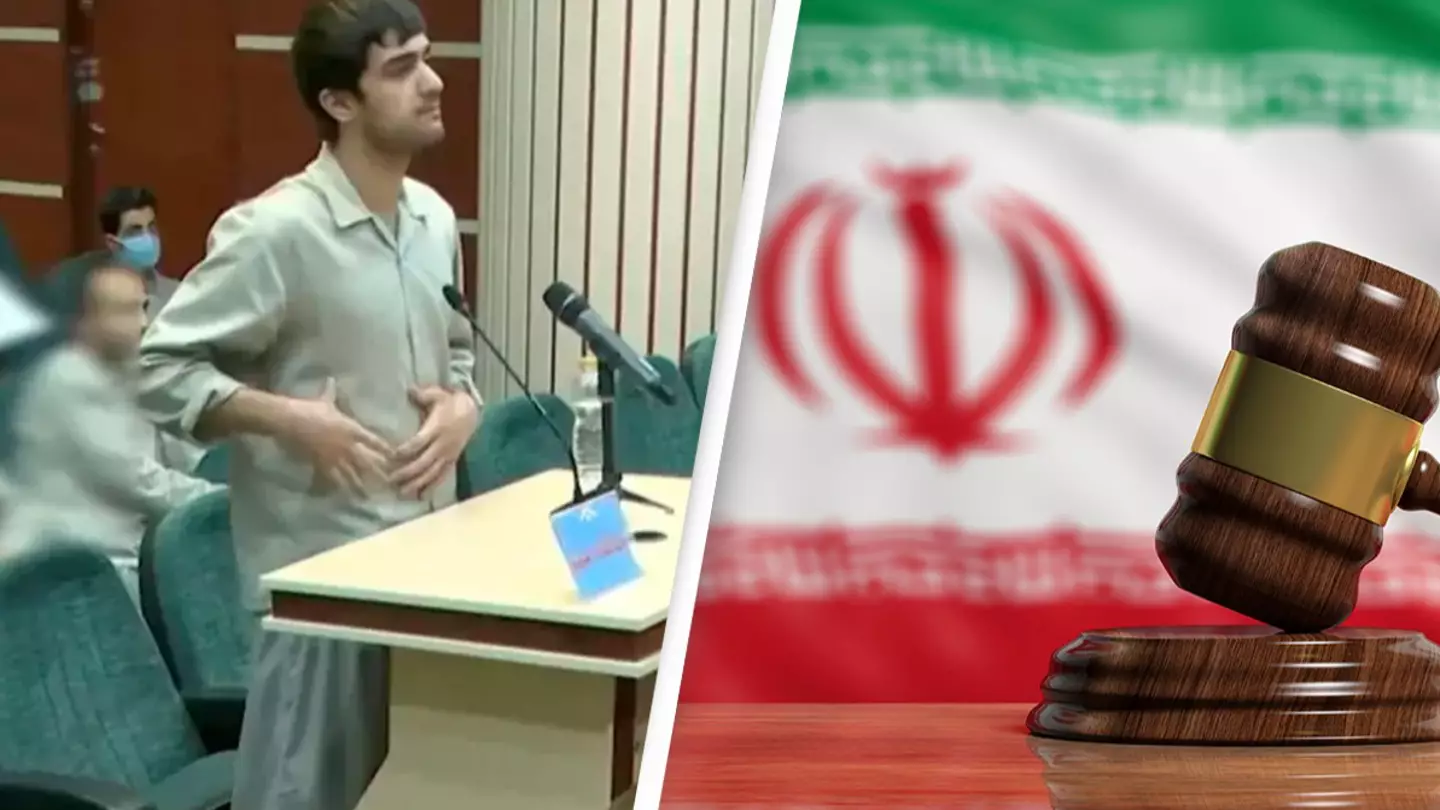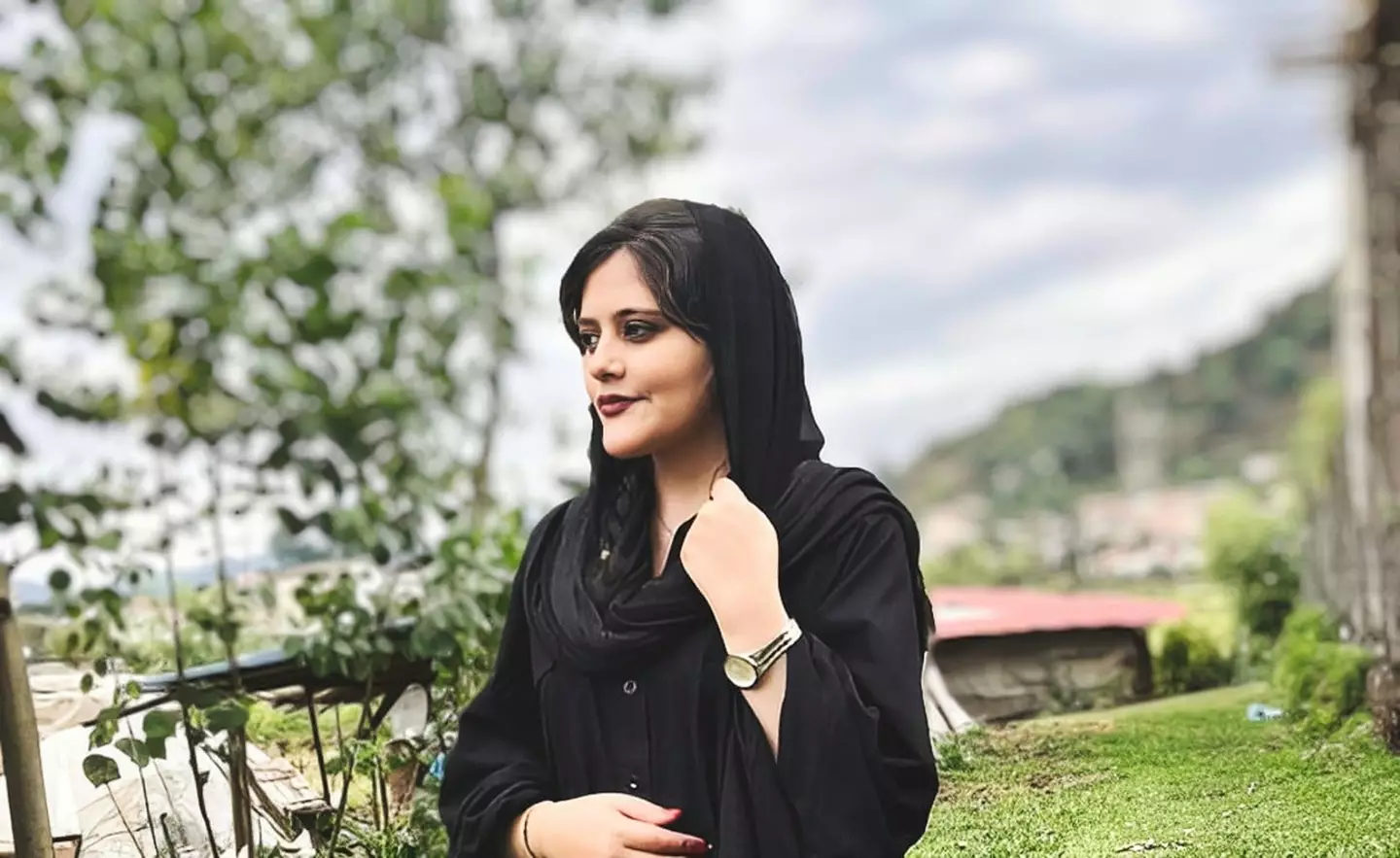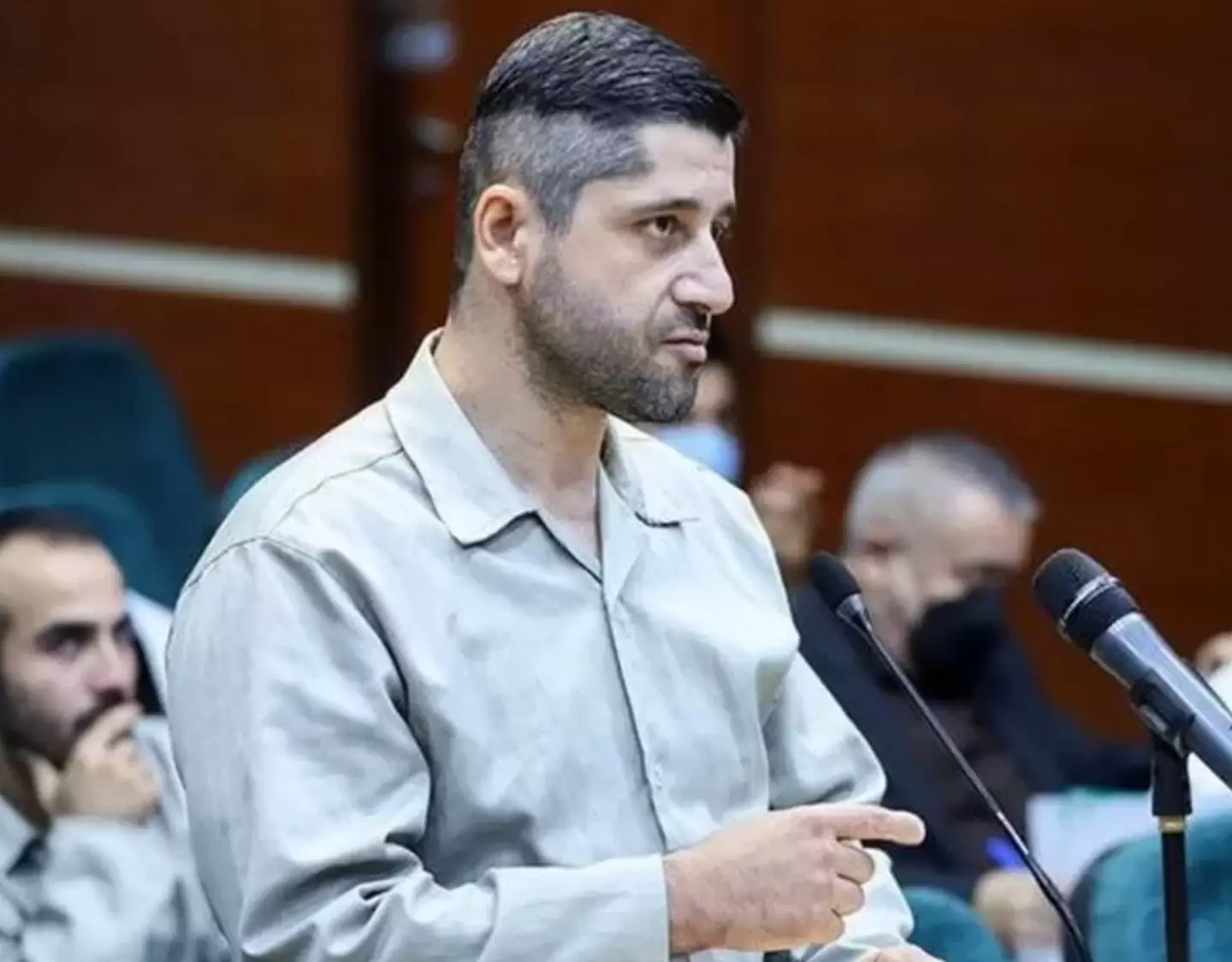
An Iranian protester was 'given 15 minutes' to defend himself before being sentenced to death.
A number of young men have been executed for their part in the ongoing protests against the country's regime.
One of those who was put to death has been named as Mohammad Mehdi Karami.
The 22-year-old karate champion was hanged on 7 January, around two months after he was arrested on suspicion of murder.
Advert
Sources in Iran have now told the BBC that Mr Karami was given less than 15 minutes to offer any defence before the sentence was passed.

The authorities alleged that Mr Karami killed a member of the paramilitary Basij force during protests in the city of Karaj on 3 November.
As a result, he was later charged with the offence of 'corruption on Earth', which carries a sentence of the death penalty.
Heavily edited footage from his hearing was later broadcast on television.
In one clip from the trial, Karami can be seen looking incredibly distressed as he admits to hitting the man with a rock.
He then sits back down, saying that he had been 'fooled'. He was sentenced to death on 5 December.
Seyed Mohammad Hosseini was also sentenced to death for his part in the alleged murder, and was also hanged earlier this month.

In cases such as this, defendants are not allowed to choose their own lawyers, they are instead represented by a legal official appointed by the court.
Family members and journalists are also not allowed to be present in the court.
A further eighteen people have also been sentenced to death, with human rights groups convinced that this is evidence of the 'show trials' being carried out by the Iranian regime in response to the uprising.
A 'show trial' is when court cases are made public with the aim of influencing public opinion rather than serving justice.
Mr Karami's dad Mashaalah Karami told the Etemad newspaper that he received a phone call from his son after the trial.
"'Dad, they gave us the verdict. Mine is the death penalty. Don't tell Mum anything'," he said.
Under Iranian law, if someone is sentenced to death, they are able to appeal the decision.
But despite Mr Karami's family enlisting the help of one of the country's top human rights lawyers Mohammad Hossein Aghasi, they were unable to do so.
Mr Aghasi said he contacted the local court and the Supreme Court, but was ignored or rejected.
Topics: World News, Crime, Iran